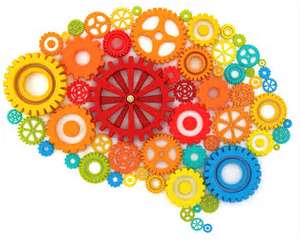

NLP
NLP was developed in the early 1970s by Richard Bandler, Ph.D., and John Grinder, Ph.D. by modeling the inner strategies and communicational patterns of: Fritz Perls, psychotherapist and founder of the Gestalt school of therapy, Virginia Satir, well-known family therapist and Milton Erickson, world-renowned hypnotherapist. What they noticed were the unique ways that these successful therapists had of interacting with others. The first step was recognizing their patterns of communication, attitudes and thinking followed by the possibility that by duplicating this style of interaction, others could achieve similar results.
Neuro Linguistic Programming (NLP) is a communicational model based on a subjective study of the language, communication, personal change and development. It represents a set of beliefs, skills and techniques forming a method of understanding how we think, communicate, and process emotions.
NLP is about understanding our inner life, strategies & mechanisms, representations, motivations, driving forces, emotions, limiting states, receiving & processing the information and their influence on behavior, as well as others. It refers to the question: “How something works?”
NLP is opening the way to defining excellence, models it defining the inner strategies, communicational patterns, attitudes and specific ways of thinking and creates an opportunity for others to do the same, easily and effortlessly.
Neuro refers to your brain and your neurology; how you receive and process information. We experience the world around us through our senses. We use our eyes to see things (visual), we can also experience by hearing (auditory), tasting (gustatory), smelling (olfactory) and by feeling, both physically and emotionally (kinesthetic). Information received by these channels (senses) is further processed by the nervous system. As a result we are making our own “world map” or our own perception of the reality.
Linguistic refers to the language we use to describe our experiences or our reality, past, present or future. It consists of words we are using to explain the information received by our senses. NLP is dealing with the influence of the words on our inner thought processes, how they determine our moods and behaviors.
Programming refers to your mental processes, feelings, personal habits, patterns of behaviors, inner strategies etc. In one word, how do we function, how do we perform during our day, are we exactly going step by step while performing some task or habit, do we stick to one routine or not, how do we feel?
NLP presumes success and good results have their own inner structure. It is based on several principles taken as truths, which ensures NLP effectiveness, as for the individual flexibility, non-judgmental approach, and position of acceptance, freedom and goal orientation. One of the main goals of NLP is creating multiple choices for the individual and making those choices visible which directly influences individuals’ ability to be in control of their own lives.
Effective communication and solution focused approach leading to success is what makes NLP coaching appreciated in all areas of application.









